Fight Depression with Hormone Replacement

Did you know you can fight depression by supplementing testosterone? In January 2003, a study published in the American Journal of Psychiatry revealed that testosterone replacement therapy can effectively fight depression. These men had been found to have low testosterone levels, aside from depression. But these two health issues have been found to have a common correlation. The research study monitored and analyzed the responses of the participants who took TRT to a series of psychological tests.
What they found was that the subjects experienced higher moods, a reduction in suicidal thoughts and felt less guilt and anxiety. Such results indicate that testosterone hormone can influence both the body and mind.
Both men and women require testosterone to address different bodily functions. Studies have shown that androgens such as testosterone provide a positive effect on well-being.
Our hormones plays a major role in regulating our emotions. When there is an imbalance or deficiency of a specific hormone, it can cause symptoms of anxiety and depression. Such effect isn’t only limited to a deficiency of testosterone. Studies have also shown that an excess or insufficiency of thyroid hormone could result to depression. Further, it has observed that women’s anxiety is significantly reduced when given bio-identical progesterone cream before sleep.
Are you suffering from depression? Your depression could be due to a hormone deficiency. It is necessary to keep a healthy, balanced hormone level for emotional stability. To add, Hormone Therapeutics offers pharmaceutical nutrients that can help fight depression and anxiety symptoms. Our program concentrates on optimizing brain chemistry, balancing hormone and reducing stress.
The Use of Sleeping Pills to Fight Depression
A number of sleeping pills are benzodiazapines or ‘sedative hypnotic’ drugs that may also be used for the treatment of stress and anxiety. But such drug is linked with a number of risks. Most of these sleeping pills are highly addictive and not advised for long-term use. The side effects include drowsiness, dizziness and impaired coordination. Since they act on the brain chemistry, nervousness, memory impairment, hallucination, confusion and aggressiveness or extreme irritability could also be observed.
Fight Depression with Hormone Replacement
Saleamp Design February 7th, 2017
Posted In: Hormone Replacement
Tags: androgens, anxiety, benzodiazapines, depression, fight depression, hormone deficiency, hormone replacement, progesterone cream, sedative hypnotic drugs, sleeping pills, stress, testosterone, Testosterone replacement therapy, thyroid hormone, TRT
A Closer Look about Prohormones
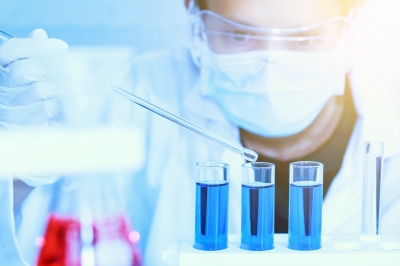 Many people don’t have any clue what prohormones are. Often, they mistake methylated oral anabolic steroids with prohormones. Methylsten, DMZ, Mithras, Trenavar among others are only steroids sold under different brands to confuse or trick authorities and consumers. The reason why methylated steroids are the worst kind is that methylation can damage the liver. Steroids taken orally are more hazardous compared to injectables. Real prohormones are the most ideal and safest option as they taken sublingually.
Many people don’t have any clue what prohormones are. Often, they mistake methylated oral anabolic steroids with prohormones. Methylsten, DMZ, Mithras, Trenavar among others are only steroids sold under different brands to confuse or trick authorities and consumers. The reason why methylated steroids are the worst kind is that methylation can damage the liver. Steroids taken orally are more hazardous compared to injectables. Real prohormones are the most ideal and safest option as they taken sublingually.
What are Prohormones?
Prohormones are known as precursors of a hormone. On the other hand, steroid hormones are made from cholesterol. Usually, prohormone are pro-DHT or pro-testosterone, which is the most abundant naturally-occuring male steroid hormone. Keep in mind that steroid hormones labelled as prohormone are not real pro-, they are only active steroid hormones.
Today, selling hormones is illegal, except for birth control pills. However, it is legal to sell supplements that are:
- One that naturally occurs in the body
- Not an active hormone
The legal and safe prohormones are the non-methylated form that your body generates in the process of producing testosterone and other highly potent hormones that are found in the body.
A real prohormone will be turned into the specific desired hormone when it enters your body. Every prohormone does unique task. So it is important that you choose the one intended for your goal. Keep in mind that all claims are 100 percent dependent upon proper exercise and diet. Also, consult your healthcare provider before taking any prohormone supplement.
Hormone Therapeutics Testosterone Therapy
Being a leading provider of low testosterone therapy solutions, we are always looking for newer ways to improve blood testosterone levels for our patients. We believe on improving testosterone levels with not only different testosterone treatment options that we offer, but also with diet, exercise, and therapeutic methods. Over the years, we have seen that our patients have greatly benefited from our Low-T therapy and treatment solutions, and our network of patients have grown across across all major cities of United States, including: Los Angeles, Houston, Miami, Chicago, Jersey City, and Seattle.
If you or a loved one is dealing with low blood testosterone levels, contact us today to get a free evaluation of your Low-T symptoms and see how our treatment options can help you with your low testosterone.
Sign up today and Get our ebook, ‘Naturally Increase Your Testosterone Levels’ absolutely FREE.
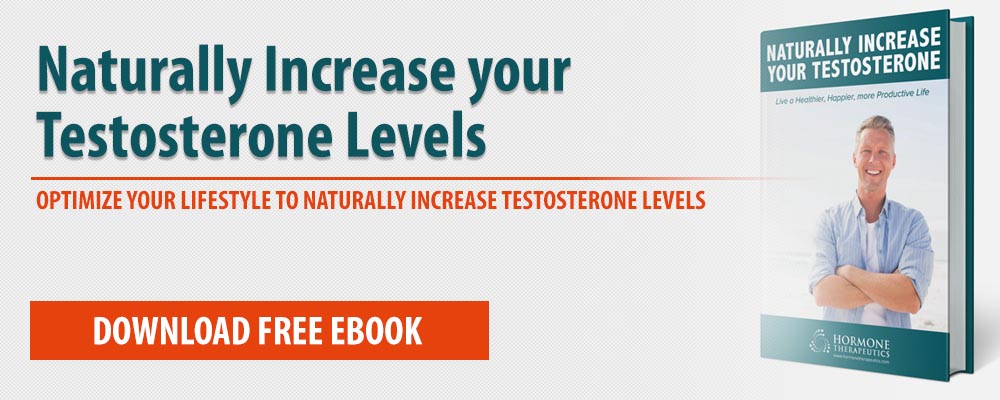
A Closer Look about Prohormones
Saleamp Design January 27th, 2017
Posted In: Health & Wellness
Tags: anabolic steroid, Anavar, DMZ, male steroid hormone, methylated, Methylsten, Mithras, non-methylated prohormones, prohormone supplement, prohormones, steroids, supplements, testosterone, Trenavar, weightloss
A Closer Look into Weight Loss Amino Acids
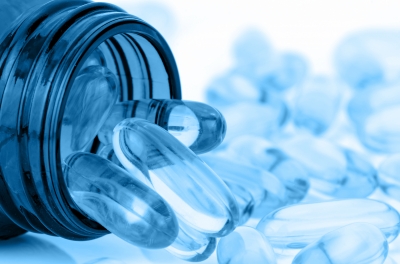 Take caution when considering weight loss amino acid supplements that make unsupported claims. Nowadays, more and more amino acids such as branched-chain amino acids, are popularly sold for losing weight.
Take caution when considering weight loss amino acid supplements that make unsupported claims. Nowadays, more and more amino acids such as branched-chain amino acids, are popularly sold for losing weight.
But upon deeper look, it seems that the evidence supporting these claims is outdated and limited. A component of protein, amino acids are present in a wide range of foods. However, until a well-established and proven research is done supporting the effectiveness of weight loss amino acids, it is still best to follow proven strategies of losing weight. Fortunately, you can include whey protein into your diet to help in weight loss.
Weight Loss Amino Acids #1: Branched-Chain Amino Acids
Valine, leucine and isoleucine are the widely marketed weight loss amino acids today. Called as branched-chain amino acids (BCAA), it became popular as a weight loss aid after a limited research as published in the 1990s, suggesting that incorporating BCAA with a calorie-restricted diet promotes weight loss. In January 1997, a study was published by the International Journal of Sports Medicine, revealing that intake of BCAAs resulted in significant weight loss among elite wrestlers when combined with calorie restriction. However, a recent research had been published confirming that the finding of the previous study lacks many aspects, making it difficult to confirm whether BCAA supplement intake alone can effectively trigger weight loss.
Weight Loss Amino Acids #2: Phenylalanine
Phenylalanine is an amino acid often used to suppress appetite. But, like BCAAs, the evidence supporting this claim is still outdated and limited. While phenylalanine may work in controlling appetite, the only available evidence that was published to support this was in the 90’s. In June 1994, a study was published in the journal Metabolism, with findings that phenylalanine can trigger the release of the cholecystokinin, a hormone that has appetite-suppressing effect.
In the study, participants who took Phenylalanine 20 minutes before the meal ate less calories and reported feelings of fullness than the subjects who took a placebo. If such claims are true, then phenylalanine may provide weight loss benefits with its potential appetite-suppressing effect. But more studies that yield similar results are necessary to establish this claim.
Whey Protein
When producing cheese, the watery part of the milk called the whey is a high-quality protein that is commonly used to aid weight loss. This part is separated from the curd. You can easily find whey protein supplement, which is usually in powder form, sold in your local health food shops.
Whey is packed with nutrients such as bioactive peptides and calcium. It also contains weight loss amino acids such as BCAAs. When taken with a reduced-calorie diet, it may speed up fat loss and help build muscle mass. In a study published by the journal Nutrition and Metabolism in 2008, whey protein supplement caused more weight loss compared to diet alone.
A Closer Look on Weight Loss Supplements
If you think you need the extra help of a weight loss supplement, you need to know which is proven effective and which is not. Weight loss supplements that are effective are not magic pills that let you eat whatever you wish and still lose pounds. Of course, you still have to reformat your eating habits and exercise.
Better consult your healthcare provider for advice on which is safe to take. Orlistat is a non-prescription, FDA-approved drug for weight loss management. It can help in weight loss by blocking fat absorption in your digestive system. Another is the African mango extract. There are numerous studies published about it that is found to help weight loss and improve cholesterol.
Hormone Therapeutics Testosterone Therapy
Being a leading provider of low testosterone therapy solutions, we are always looking for newer ways to improve blood testosterone levels for our patients. We believe on improving testosterone levels with not only different testosterone treatment options that we offer, but also with diet, exercise, and therapeutic methods. Over the years, we have seen that our patients have greatly benefited from our Low-T therapy and treatment solutions, and our network of patients have grown across across all major cities of United States, including: Los Angeles, Houston, Miami, Chicago, Jersey City, and Seattle.
If you or a loved one is dealing with low blood testosterone levels, contact us today to get a free evaluation of your Low-T symptoms and see how our treatment options can help you with your low testosterone.
Sign up today and Get our ebook, ‘Naturally Increase Your Testosterone Levels’ absolutely FREE.

A Closer Look into Weight Loss Amino Acids
Saleamp Design January 24th, 2017
Posted In: Health & Wellness
Tags: African mango extract, amino acids, appetite suppressant, BCAA, branched-chain amino acids, isoleucine, leucine, orlistat, phenylalanine, valine, weight loss, weight loss amino acids, weight loss supplements, weight management, whey protein
9 TRT Mistakes You Should Know
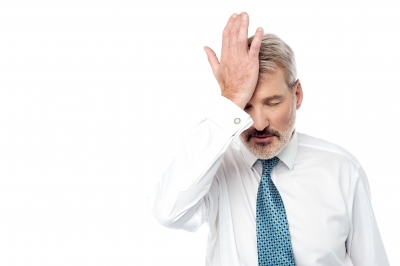 Here are some of the most common TRT mistakes that patients and even doctors make when following a testosterone therapy.
Here are some of the most common TRT mistakes that patients and even doctors make when following a testosterone therapy.
TRT Mistakes #1: Choosing a treatment plan that does not suit your personality or lifestyle
Many TRT doctors only prescribe the testosterone protocol they are comfortable or familiar with, whether it is gel, injection or even pills. However, not all protocols fit every person’s personalities or lifestyles. For instance, if you sweat a lot or do lots of workout, using transdermal patches or creams won’t be as effective as testosterone injection as the testosterone content of transdermal patches won’t be completely absorbed.
Another thing, if you are afraid of needles, testosterone injection will surely be the most uncomfortable situation. Say, you are fine with needles, but what if your doctor does not want to teach you how to inject on your own? Do you have time to drive to his office every week for your injection? Does it fit in with your schedule?
Look for a doctor who knows all TRT protocols and is diligent to ask you about your personality and lifestyle. Otherwise, you might end up discontinuing a TRT protocol because it didn’t suit your lifestyle, your work or your personality.
TRT Mistakes #2: Taking the wrong dose
When you encounter a person who speaks that TRT didn’t work for him, it often has to do with the dosage. You have to understand that testosterone replacement therapy varies from patient to patient. A dosage that could increase a person’s total T to 700 may only bring your up to 400. In addition, a total testosterone level of 700 might be enough for one person, letting him enjoy all the benefits of TRT but for you, it might not be enough.
The dosage and its frequency have to be adjusted from time to time so you make the most you can out of TRT.
TRT Mistakes #3: Cycling testosterone
Maybe because of reading too much bodybuilding magazines, some patients assume that testosterone should be cycled. Cycling is only suitable for users of anabolic steroids whose main goal is to add more muscle mass or enhance performance. However, it is not appropriate for TRT.
Simply put, when you use TRT, your testes take a rest from manufacturing testosterone. If you just stop TRT immediately, you are left with nearly zero testosterone in your body, and at this point, everything goes south. Decreased libido, weight and depression set in. This means that all the benefits you enjoyed with TRT revert. If you decide to stop using testosterone for some reason, work with your doctor to ensure you’re doing it effectively and safely.
TRT Mistakes #4: Wrong Management of Possible Side Effects
Nearly all possible TRT side effects can be managed easily, whether they include hair loss, acne, moodiness or an increase in hematocrit or PSA (prostate-specific antigen). It is important to manage these side effects effectively as it is necessary for the long-term success of your testosterone therapy.
Of course, no one wants to experience these side effects through TRT only to be replaced by another set of side effects. Oftentimes, it is only a question of dosage adjustment or the delivery system but they may sometimes require extra medications.
TRT Mistakes #5: Not living a testosterone-friendly life
Smoking, being overweight, drinking in excess, not having enough sleep, avoiding exercise and taking blood sugar for granted are some of the biggest TRT mistakes that you should avoid. These shouldn’t be part of your lifestyle. Testosterone replacement therapy can create a 180 degree turn in your life. It can make you feel like in your 20s or 30s.
All those bad habits mentioned can greatly deplete your testosterone reserve and no amount of TRT can compensate to offset such kind of lifestyle. It’s best to practice as many healthy habits as possible to make your TRT experience better.
TRT Mistakes #6: Poor compliance
Testosterone therapy requires 100 percent commitment. Like any medication, if you forget to inject or rub cream after a morning shower, it’s not going to give you its expected results. Failing to administer or apply it and it will not work and the long-term outcome will be compromised and unsatisfying.
In addition, poor compliance to TRT has its own inherent consequences. When your T levels keep on fluctuating from highs to lows, you could experience possible swings in your performance, energy and functionality.
There are lots of ways to help you remember your application or injection schedule. You can mark your calendar beforehand, place notes on your fridge or use mobile apps. Find one that will work for you.
TRT Mistakes #7: Choosing the wrong doctor
Today, more and more dentists now provide Botox injections, but that is definitely not part of their training and they are not more qualified, as far as education is concerned, to provide Botox more than a plastic surgeon or a dermatologist. But many dentists see it as a way to augment their income.
On a similar note, many doctors have joined the TRT bandwagon. They do not have the expertise to give testosterone, but they simply do it as a way to increase their income. The problem is, there’s more to TRT than just giving a prescription. Testosterone therapy isn’t just simply elevating your T levels, it is helping your patients find their optimal T levels.
Further, you need one who is knowledgeable in managing any possible side effects of TRT, including other aspects of the TRT science such as the adjunctive therapies.
Finally, you need one who applies what he prescribes. In this case, a doctor who is under TRT himself, who lives a healthy lifestyle and exercises, has the firsthand knowledge into TRT compared to a conventional doctor who only prescribes TRT on the side.
Consider the possible costs before choosing a doctor as well. Do your own homework in finding the right doctor for you.
TRT Mistakes #8: Overlooking estrogen levels
As mentioned in Number 2, the leading cause for having less stellar results with TRT is wrong dosage. The second most common problem among patients who say TRT didn’t work for them is the failure to keep track of their estrogen levels.
When the body metabolises testosterone, it turns into other chemicals such as DHT (Dihydrotestosterone) and estradiol. Estradiol is a metabolite of estrogen, the major hormone in women. Though men require a certain level of estrogen to maintain vascular health, excessive levels can cause gynecomastia, weight gain, extra body fat and subtle mental changes. Excessive estrogen can also hinder the benefits of TRT.
This problem can be very easy to control, but first, you have to find a capable TRT doctor to recognize and fix it.
Hormone Therapeutics Testosterone Therapy
Being a leading provider of low testosterone therapy solutions, we are always looking for newer ways to improve blood testosterone levels for our patients. We believe on improving testosterone levels with not only different testosterone treatment options that we offer, but also with diet, exercise, and therapeutic methods. Over the years, we have seen that our patients have greatly benefited from our Low-T therapy and treatment solutions, and our network of patients have grown across across all major cities of United States, including: Los Angeles, Houston, Miami, Chicago, Jersey City, and Seattle.
If you or a loved one is dealing with low blood testosterone levels, contact us today to get a free evaluation of your Low-T symptoms and see how our treatment options can help you with your low testosterone.
Sign up today and Get our ebook, ‘Naturally Increase Your Testosterone Levels’ absolutely FREE.

9 TRT Mistakes You Should Know
Saleamp Design January 20th, 2017
Posted In: Testosterone Therapy
Tags: cycling, DHT, dihydrotestosterone, dosage, dose, E2, estradiol, estrogen, gynecomastia, testosterone, testosterone mistakes, testosterone protocols, Testosterone replacement therapy, testosterone side effects, testosterone therapy, TRT, TRT dose, TRT mistakes, TRT protocols, TRT side effects
What You Need to Know about Testosterone Injection Protocol

Many guys find testosterone injection intimidating, perhaps because there isn’t enough information about it to get started. Men ask for complete details and for that, below is a brief discussion on what you need to know about TRT when getting started.
Testosterone Injection Protocol
- 1.0 mg Arimidex (Anastrozole) per week in divided doses
- 250 IU Human Chorionic Gonadotropic injected subcutaneously every other day
- 100 mg testosterone enanthate or cypionate given per week, could be two or more depending on doctor’s advise
Testosterone injection done once a week causes spikes in the level of testosterone followed by lows. This can make you feel worse by the end of the end compared to your pre-TRT stare. Later on, the dead zone gets broader, feeling no relief with testosterone injection. This makes injecting twice a week or every other day (EOD) much better.
When you have frequent injections, the volumes are too small, using #29 0.5ml 50IU insulin syringes. You can inject in the muscle at the side of your thighs (vastus lateralis). The injection loads very slowly, however, the tiny plunger causes very high pressures. Never use 1.0ml syringes. The same size of syringe can be used for HCG injections.
Small needles cause less muscle damage. Some use #25 needle but this may not be faster compared to 50IU insulin needles. A clinical research has found that testosterone injection through subcutaneous tissue, which is under the skin into the body fat, provide a steadier levels of testosterone and enhances sense of well-being.
For men who exercise, sweat or shower a lot, transdermal testosterone gels and creams are not advised. Transdermal creams and patches are quite hefty and about 10 percent only of its testosterone content is absorbed. Also, men who have low levels of thyroid hormones don’t efficiently absorb testosterone administered topically.
Some people absorbs transdermal creams at the beginning, however, changes in the skin can prevent absorption after some time. With testosterone injections. There are no uncertainties or limitations when it comes to delivery of the drug.
Guidelines on hCG Injection
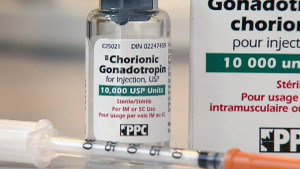
Human Chorionic Gonadotropin (hCG) is a water-based peptide hormone that is injected to replenish lost luteinizing hormone (LH) that TRT suppresses. A lack of hCG can result to deactivation of LH receptors present in the testes. This results in:
- Shrinkage of testes. For some, the testes can eventually lead to testicular atrophy. The degree of shrinking differs from person to person, but is more common among older men.
- Fertility can be greatly affected. If you want an offspring, hCG injection is necessary. If not given, it may greatly reduce fertility or you may not recover fertility.
- Less pain sensation. When the testes shrinks, some men feel pain in their testes. You can avoid this situation by injecting hCG.
- When there’s a huge dearth of hCG and LH, the scrotum shrinks too and pull up to the body, giving the pre-pubescent appearance. This isn’t good for a person’s body image perception, and may also affect how women see you sexually.
- Promotes pregnenolone production. Testes are the major producer of the hormone pregnenolone – a precursor to all steroid hormones such as cortisol, testosterone, DHEA, estrogen among other. It is also vital for proper mental functioning. hCG injection prevents a drug-induced deficiency of pregnenolone. People who are on TRT without hCG and then just start hCG reported a significant improvement on their mood, that most attributed to increase in pregnenolone levels.
When you inject hCG, you administer it into the fat beneath the skin the same as diabetics administer insulin. Research on the use of subcutaneous injection in men has showed the effectiveness of 250IU EOD dose. You can look for diabetes patient education material on how to administer insulin injection to be used for testosterone injection or hCG.
Guidelines on Anastrazole and Aromotase Inhibitors
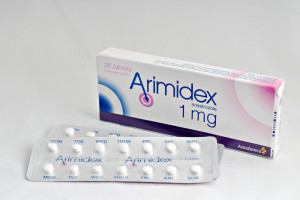
Elevated serum estradiol/E2 (30pg/ml and above) can interfere many benefits of testosterone injection. A serum estradiol equivalent to 22pg/ml is near optimal and to be able to get near this level, a person should take Anastrozole. Many men who began with TRT experienced favourable results that later on faded as estrogen levels increase.
My advice is to begin Anastrozole at 1.0mg per week in divided doses beginning at the day of your first injection. Then follow up estrogen lab tests for any necessary Anastrozole dose adjustments. It is not a good idea to wait and check if your estrogen levels increase before taking action. Take Anastrozole EOD if possible.
Testosterone injection with a dose of 100mg should result in 800 to 900 total testosterone (TT) range. While this is a good result, monitor your free testosterone (FT) or the bio-available testosterone. Some doctors won’t bother looking at the TT numbers at all. With age, SHBG (Sex hormone-binding globulin) levels increase while FT levels decrease.
See, a TT of 1000 of a young man won’t be the same as the TT of 1000 for an older man with high SHBG levels, because the FT level of the older man will likewise be well below, even though they have the same TT. Lab ranges presented on lab reports are age-adjusted.
Further, you have to know about prostate-specific antigen (PSA), problems in the prostate and digital rectal exam. Estrogen is a major factor of enlarged prostate or BPH (Benign prostatic hyperplasia). Many find that decreasing estrogen to 22pg/ml improves their urine flow as well as BPH. You also have to monitor your haematocrit levels as part of routine lab work.
Hormone Therapeutics Testosterone Therapy
Being a leading provider of low testosterone therapy solutions, we are always looking for newer ways to improve blood testosterone levels for our patients. We believe on improving testosterone levels with not only different testosterone treatment options that we offer, but also with diet, exercise, and therapeutic methods. Over the years, we have seen that our patients have greatly benefited from our Low-T therapy and treatment solutions, and our network of patients have grown across across all major cities of United States, including: Los Angeles, Houston, Miami, Chicago, Jersey City, and Seattle.
If you or a loved one is dealing with low blood testosterone levels, contact us today to get a free evaluation of your Low-T symptoms and see how our treatment options can help you with your low testosterone.
Sign up today and Get our ebook, ‘Naturally Increase Your Testosterone Levels’ absolutely FREE.

What You Need to Know about Testosterone Injection Protocol
Saleamp Design January 17th, 2017
Posted In: Testosterone Therapy
Tags: anastrozole, aromatase inhibitors, free testosterone, HCG, Human Chorionic Gonadotropin, LH, Luteinizing Hormone, pregnenolone, prostate-specific antigen, serum estradiol, testicular atrophy, testosterone, Testosterone Enanthate, testosterone injection, Total Testosterone, TRT, TRT protocol
The Effect of HCG Therapy with Testosterone in Preserving Fertility, Libido and Testicle Size
What is HCG Therapy?
Human Chorionic Gonadotropin is the glycoprotein hormone that mimics luteinizing hormone, a hormone produced by pregnant women by a growing embryo right after conception. The action of HCG is to prevent the disruption of corpus luteum in the ovary and to maintain the production of progesterone, another important hormone during pregnancy. HCG does a key role in the development of egg in the ovary and triggers the release of egg during ovulation. Further, HCG can be used to stimulate ovulation and address infertility in women.
If you’re confused what HCG has to do among men, then continue reading.
HCG therapy is given among young boys when their testicles didn’t go down in their scrotum as it should be. HCG is also important in preventing testicular shrinkage when using testosterone or anabolic steroid for a long time.
HCG Therapy on Testicle Size
Once testosterone is replaced, it stimulates the production of gonadotropin releasing hormone (GnRH). When GnRH isn’t present, the release of luteinizing hormone is halted by the pituitary gland. Without LH, the testicles couldn’t produce testosterone for the body. A decrease in testosterone can cause testicular shrinkage but once they are replaced, they start to enlarge again and immediately produce testosterone when HCG therapy is administered. HCG Therapy enhances a man’s testes in producing more testosterone.
HCG, when administered in small doses two to three times a week with testosterone replacement, can treat the reduced level of intratesticular testosterone. HCG is believed to have an LH-mimicking action, as well as the increase in the production of intratesticular testosterone. This is one of the reasons why many men are able to keep their fertility and libido when using 500 IU of HCG therapy with testosterone.
According to recent studies, it is now possible to maintain normal quality of sperm using the above ways without using FSH (follicle-stimulating hormone). Gonadotropin shouldn’t be ignored since it is necessary for sperm production.
Where does HCG Therapy come from?
Human Chorionic Gonadotropic is derived from the pregnant women’s urine or from other genetic modifications. The product is commonly available by prescription in different brand names such as Pregnyl, Profasi, Novarel and Follutein.
HCG comes in the form of a powder contained in a vial of 3,500 IU; 5,000 IU; 11,000 IU and more. It is better to contact a pharmacy and request to make vials for you in various IU amount. The vial comes with a 1 ml of bacteriostatic water as a diluent.
How is it administered?
HCG therapy is given as an injection under the skin or into the muscles. However, these two methods are still being debated if which one is better. The number of IUs for every injection varies on the amount of bacteriostatic water added to the powder. Bacteriostatic water is a fluid that contains preservatives. The water is added to the powder to reconstitute it before administration. When refrigerated, it has the ability to preserve the HCG for up to six weeks. It is important that you use ultrafine insulin needle when injecting HCG through the skin.
Conclusion:
HCG therapy has been proven as one of the best methods to address testicular shrinkage. When a person’s testes shrink, it can greatly affect his psychological and emotional well-being and thus, having an impact on his sex life. To prevent testicles from shrinking and preserve libido, HCG therapy is one of the best treatment options to consider.
Testosterone Therapy
Being a leading provider of low testosterone therapy solutions, we are always looking for newer ways to improve blood testosterone levels for our patients. We believe on improving testosterone levels with not only different testosterone treatment options that we offer, but also with diet, exercise, and therapeutic methods. Over the years, we have seen that our patients have greatly benefited from our Low-T therapy and treatment solutions, and our network of patients have grown across across all major cities of United States, including: Los Angeles, Houston, Miami, Chicago, Jersey City, and Seattle.
If you or a loved one is dealing with low blood testosterone levels, contact us today to get a free evaluation of your Low-T symptoms and see how our treatment options can help you with your low testosterone.
Sign up today and Get our ebook, ‘Naturally Increase Your Testosterone Levels’ absolutely FREE.

The Effect of HCG Therapy with Testosterone in Preserving Fertility, Libido and Testicle Size
Saleamp Design January 10th, 2017
Posted In: Hormone Replacement
Tags: HCG, HCG therapy, Human Chorionic Gonadotropin, intratesticular testosterone, libido, Luteinizing Hormone, testes, testicular shrinkage, testosterone, testosterone replacement
How Sermorelin Works for Human Growth Hormone Insufficiency
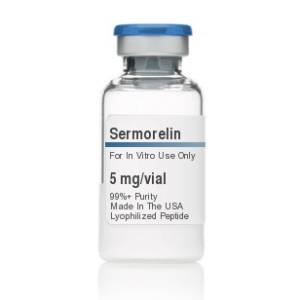 Sermorelin, medically termed as growth hormone releasing factor 1–29 NH2-acetate, is a bio-identical human growth hormone that has been genetically engineered to trigger the production of growth hormone releasing hormone (GHRH) coming from the hypothalamus, a gland next to the pituitary gland.
Sermorelin, medically termed as growth hormone releasing factor 1–29 NH2-acetate, is a bio-identical human growth hormone that has been genetically engineered to trigger the production of growth hormone releasing hormone (GHRH) coming from the hypothalamus, a gland next to the pituitary gland.
GHRH is a type of peptide containing 29 amino acids present on our own growth hormone. These amino acids are the active ones of GHRH. GHRH stimulates the pituitary gland to release growth hormones. As we age, the hormones secreted by the pituitary gland become depleted. Studies have shown the Sermorelin can restore the growth hormone to a youthful level by elevating the levels of IGF-1 (Insulin-like Growth Factor 1).
What are the Benefits of Sermorelin?
Sermorelin offers a handful of benefits. Patients can expect to notice:
- Increase in their energy level due to fat breakdown
- Increase in lean muscle due to efficient protein synthesis
- Increase in muscles mass
- Reduction in body fat due to efficient fat burning or lipolysis
- Stronger joints and connective tissue
- Stronger immune system
- Increase in bone density due to increase in calcium retention
- Improved cognitive performance
- Efficient function of all internal organs
How does Sermorelin look like?
Sermorelin comes in an injectable vial, often in multi-dosage. Each vial contains 15 mg of lyophilized Sermorelin acetate. It is vacuum sealed to protect and preserve the hormone peptide. Every vital also comes with a diluent – a bottle of Bacteriostatic water.
How does Sermorelin administered?
Sermorelin is administered via subcutaneous injection using a fine needle similar to the one used for insulin among diabetics. The frequency is usually daily and is reduced over time.
When should I take Sermorelin?
The best time to administer Sermorelin is before bedtime. Growth hormone is usually released while asleep. During this time, it is highly beneficial for the body’s repair and recovery. Sermorelin has also a sleep-promoting effect and so, it can make you feel sleepy if administered during the day.
How will I know if Sermorelin is taking effect?
Both IGF-1 and HGH are secreted in a pulsatile nature, rather than constant. As such, a random blood analysis isn’t enough to achieve precise measurement. Physicians who prescribe Sermorelin and other similar peptides determine the effectiveness of the medication through symptomology or the study of the symptoms to check the benefits, blood analysis and physical appearance.
You’ll notice that it’s working if you experienced an improved sleep after several weeks of therapy. But this can only be noticed by those who have difficulty sleeping, however, most patients reported an improvement in sleep quality. It is usually accompanied with an improved mood and increase in energy level.
After 3 to 6 months of therapy, patient start to report significant changes in the body such as a leaner physique and increase in muscle mass. Later on, they will also notice a huge improvement in their overall health.
How long does Sermorelin take to work?
Similar to most human growth hormone medications, Sermorelin often has a ‘loading’ period between 3 and 6 months before you notice the full effects. When injected, Sermorelin is eliminated from the system rapidly and must be injected frequently. Its mechanism of action relies on a chain reaction of biological processes that result in increased growth factors and HGH. It will take some time for the levels to be optimal and achieve the benefits.
Do I have to take Sermorelin for the rest of my life to maintain the positive results?
The answer is no. Sermorelin has an active sustaining effect where the optical HGH level keeps after the last injection. Similar to synthetic HGH, Sermorelin should be injected daily but once the optimal levels are achieved, the frequencies of the injection can be reduced or stopped. When the results are achieved, the patient can shift to a maintenance protocol where the need for daily injections is eliminated.
Sermorelin vs. Synthetic Human Growth Hormone
Sermorelin is Better in Reducing Body Fat
Lipodystrophy is a condition characterized by abnormal accumulation of adipose tissue or body fat in certain areas of the body, usually at the legs, stomach, lower back and hips. Lipodystrophy is similar to the increase of body fat occurring as we age. A study on the effects of GHRH on HIV-positive men experiencing lipodystrophy has been published in 2011.
Results of the study showed that patients given with GHRH lost body fat and increased muscle mass, which significantly improved total body composition. The study concluded that GHRH was well tolerated by the patients and effectively increase IGF-1 level in HIV patients with lipodystrophy. The use of Sermorelin may potentially be beneficial for this population.
In Santa Monica, Ca, Dr. Rand McClain has found that patients experienced marked adipose tissue loss upon using Sermorelin. Many athletes have used Sermorelin and other peptides to reduce body fat and increase lean muscle. Additionally, Sermorelin plays a huge role in exercise recovery.
The Use of Synthetic Human Growth Hormone May Decrease Lifespan
Patients taking human growth hormone may actually shorten your lifespan, which totally conflicting to how it’s supposed to promote – anti-aging. Synthetic HGH is believed to bypass the pituitary axis going straight to the liver. This results to an increase of IGF-1 for an extended period of time. Persistent elevation of IGF-1 is harmful to health, and may lead to disease.
Many credit the beneficial effects of HGH to the mechanism of IGF-1 but this isn’t true. Studies revealed that the ideal environment for promoting positive health and enhancing longevity is to have high levels of naturally-produced growth hormone as well as growth hormone reserves and pulsing IGF-1. A pulsing IGF-1 means that the level fluctuates throughout the day with levels having high peaks and low valleys. Because IGF-1 is a highly powerful factor, it is so important that the level is maintained at all times, using only IGF-1 when necessary. Additionally, it was recently discovered in a clinical observation that some effects falsely associated to IGF-1 such as gain of lean muscle and extreme fat loss are actually the result of increase in endogenous growth hormone and not the IGF-1.
The use of Sermorelin acetate promote longevity by increasing the production of human growth hormone and promoting pituitary reserves of HGH. Sermorelin doesn’t bypass the pituitary-GH axis and as such, providing better control of IGF-1 level to preserve health.
Hormone Therapeutics Testosterone Therapy
Being a leading provider of low testosterone therapy solutions, we are always looking for newer ways to improve blood testosterone levels for our patients. We believe on improving testosterone levels with not only different testosterone treatment options that we offer, but also with diet, exercise, and therapeutic methods. Over the years, we have seen that our patients have greatly benefited from our Low-T therapy and treatment solutions, and our network of patients have grown across across all major cities of United States, including: Los Angeles, Houston, Miami, Chicago, Jersey City, and Seattle.
If you or a loved one is dealing with low blood testosterone levels, contact us today to get a free evaluation of your Low-T symptoms and see how our treatment options can help you with your low testosterone.
Sign up today and Get our ebook, ‘Naturally Increase Your Testosterone Levels’ absolutely FREE.

How Sermorelin Works for Human Growth Hormone Insufficiency
Saleamp Design January 6th, 2017
Posted In: Testosterone Therapy
Tags: GHRH, growth hormone-releasing hormone, HGH, human growth hormone, IGF-1, lipodystrophy, longevity, pituitary gland, Sermorelin, synthetic HGH
99 Simple Naturals Ways to Increase Testosterone – Part 4
This is the fourth and last part of our comprehensive list of:
99 Simple Natural Ways to Increase Testosterone
Onion Love
Munching onions is one of the best natural ways to increase testosterone level. Studies have shown that a high concentration of onions in certain lab animals actually as much as tripled their testosterone levels. And they’re versatile, voluminous and delicious too.
Super Selenium Works
Brazil nuts anyone? Easy to manage with any diet regimen (just a few brazils, macadamias or walnuts will suffice), a good selenium addition is one of the excellent natural ways to increase testosterone level.
Find a Healthy Omega-3 to Omega-6 Balance
An optimal 1:1 balance may be dicult to manage but if you just cut out any and all vegetable, canola, sunflower and soybean oil from your cooking, and use butter and/or olive oil instead, you’ll go a long way to finding the proper balance and boosting your testosterone too.
 Don’t Go Cheap on Your Salt
Don’t Go Cheap on Your Salt
As one of the most essential, everyday food additives, do not settle for cheap, refined table salt that may contain harmful fluoride due to its manufacturing process. Unrefined sea salt and/or Himalayan salt are very, very worthwhile investments.
Give It a Rest
Yes, more sex is better than less, but frequent self-pleasure may actually lead to a decrease in your testosterone levels. Try to manage and mix in a 1-2 Days Hands O Abstinence Program to give your testes time to refresh and reload.
Get Your Citrus
Get as much citrus fruit as you can as they’re a fantastic metabolism booster and adds the proper alkaline to your body that leads to a healthy testosterone increase.
Add Vitamin A Plus
Like vitamin K2 (see #75) vitamin A is an important, fat soluble nutrient that is among the natural ways to increase testosterone level. So don’t forget your dark leafy greens, fish, liver and carrots and tropical fruits.
Add Vitamin E for Easy
Easy vitamin E promotes volume and motility of your sperm levels as well as being highly beneficial to your hair and skin. Low levels of E, conversely, can lead to increased estrogen.
Add Ashwagandha as a Super Supplement
Also known as “Indian ginseng” this plant is renowned for its natural hemoglobin producing properties as well as for being a powerful natural testosterone booster. Read your labels and purchase only organic.
Shilijat Straight from the Himalayas
Although it may be dicult to locate this supplement, your body will be glad you did. Taken as a regular supplement (usually in a tea drink in powder form) Shilajat is rich in fulvic acids, a testosterone firecracker of nutrients.
Add Avena Sativa
Another “Natural Viagra”, avena sativa is rich in zinc, manganese and iron and is often prescribed as natural erectile enhancement with no harmful side effects. It’s even often used as a “sexual stimulant” for women!
Get Spot
Bring a friend when you hit those weights! A spotter is not only a good safety practice for strength training, it can increase your testosterone levels too. Having a buddy there to help you bust past your max will give you a testosterone boost, and so will knowing someone is there watching. It’s an ego thing.
Right Carbs, Right Time
Carbohydrates are an important macronutrient, but they’re also one of the biggest contributors to body fat and lowered testosterone. Get the benefits without the pudge by eating the majority of your daily carbs immediately before and after your workout. That’s when you have the highest anabolic potential, so your body will burn them best.
Work the biggest muscle
Your biggest muscles are in your legs, and the way to work them is with squats. This is an amazing compound exercise that works all sorts of muscles at once, and the effort and exertion required will increase testosterone. Keep on squatting!
Say it with me: ZMA
Zinc is an extremely important factor in maintaining your Testosterone levels (that’s why the oysters!), but it’s not the only one. ZMA is a combination of Zinc, Magnesium, and Vitamin B6 – nutrients that are natural ways to boost testosterone level. It’s a super handy supplement stack to take right before bed. You’ll get better sleep and you’ll produce more testosterone while you’re at it.
 Snack on Some Sushi
Snack on Some Sushi
The omega-3 fatty acids contained in fish have a ton of health benefits, not least of which is increased testosterone production in men. Salmon is one of the absolute best sources of these aminos, but just about any fish will do. Fish oil supplements can do wonders if you’re not a fan of seafood.
But Keep It Fresh
Although fish is fantastic for your health, go easy on the canned tuna. Canned tuna, especially albacore, has notably higher levels of mercury than other seafood. Mercury is just plain bad for you, and among other things will impact your testosterone. You don’t have to cut out the tuna salad sandwiches entirely, but don’t make it your only source of fish.
Get Zen
You might think meditation is some hippy-dippy nonsense that’s just for spacey dudes who should eat a sandwich, but it’s actually an awesome way to lower stress. Lower stress means increased testosterone levels, so it’s something every man should consider. Give it an honest shot and you might be surprised!
Hooray for Forskolin
Studies have shown this herbal supplement is effective in boosting testosterone levels when taken over an extended period of time. Men who take it report that their overall mood and energy level improves, and it’s just a great thing. Give it a try and integrate it into your supplement regimen. Just remember it
Dodge the Trans Fats
Trans fats are found in partially hydrogenated vegetable oils. They’re just plain bad for you! They’ll lower your testosterone production and it can bring on a host of other health problems. Sadly, it’s mostly found in deep fried, processed and frozen foods. Those can be pretty addictive, but show some control and stick to fresh or organic.
Olive Oil!
Premade bottled salad dressings are usually pretty bad for you. They’re filled with all kinds of chemical garbage, and there’s just no need for them! One of the best natural ways to increase testosterone, boost is to use healthy olive oil instead. Just pour a little on your salad, and follow it up with some sweet Balsamic vinegar. For extra credit, add garlic or other healthy herbs!
Go for the Gold with Olympic Lifts
The two classic Olympic lifts, the snatch and the clean & jerk, are supremely difficult and supremely effective at training your body. Don’t overdo your workouts, but once in a while give these two mainstays a try. You will hurt, guaranteed. But it’s a good hurt, and it’ll spur your testosterone levels.
Complete Failure, It Really Is
Once again, don’t overdo your workouts! Although it’s tempting to push yourself to total muscle failure when you literally cannot hold up the weight any longer, you’re doing more harm than good. It’s fine every so often as a tool to find your maximum lift, but do not make it a regular part of your workout regimen. You’ll just over train!
 Get Help
Get Help
There’s no shame in seeing a therapist or counselor, and it can improve your body as well as your mind. Even mild depression will increase cortisol and lower testosterone levels. Getting past it with the aid of a professional is the best way to feel better, and you might be surprised at just how much better you feel once your body chemistry catches up.
Hormone Therapeutics aims to help people looking to improve and optimize their health through natural means or through the guidance of our physicians.
Don’t miss out our free weekly tips and news on Low T, hormone balancing, healthy living, nutrition and a lot more.
Want more?

Sign up today and Get our ebook, ‘Naturally Increase Your Testosterone Levels’ absolutely FREE.
99 Simple Naturals Ways to Increase Testosterone – Part 4
Saleamp Design December 20th, 2016
Posted In: Health & Wellness
Tags: boost testosterone, natural ways to boost testosterone, testosterone production


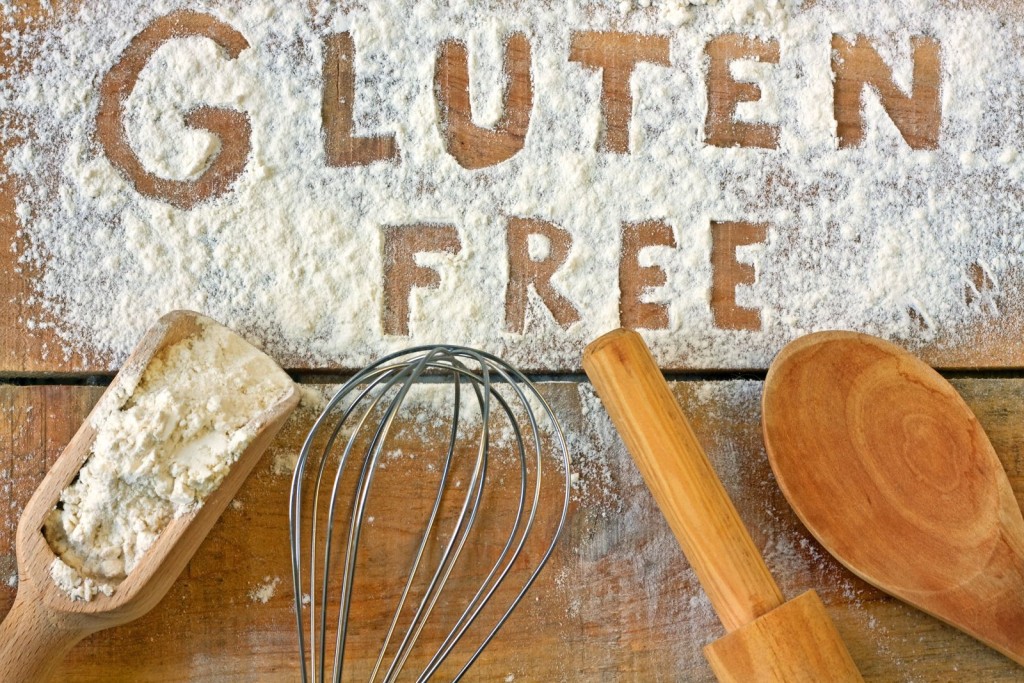
 According to the latest study, dementia, including Alzheimer’s disease, has surpassed heart disease as the leading cause of death in England. In 2015, over 61,000 people died due to dementia, or 11.6 of all recorded deaths.
According to the latest study, dementia, including Alzheimer’s disease, has surpassed heart disease as the leading cause of death in England. In 2015, over 61,000 people died due to dementia, or 11.6 of all recorded deaths.
